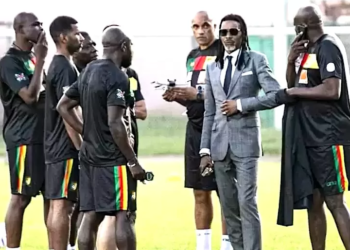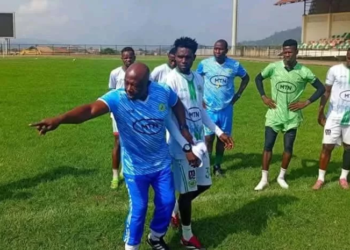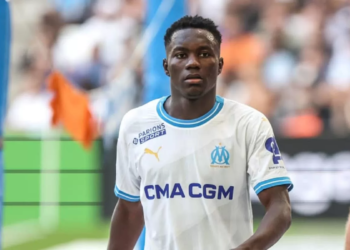YAOUNDE, May 9 (Reuters) – It is an unlikely scenario but still a possibility: by the end of June, Cameroon could be Olympic, African and world champions with a Cameroonian as president of FIFA as well.
Cameroon already hold the Olympic and African soccer titles and have a chance of winning the World Cup. Issa Hayatou, the president of the Confederation of African Football (CAF) also has a reasonable chance of winning the vote for FIFA president when he stands against incumbent president Sepp Blatter in May, two days before the World Cup kicks off on May 31.
If the results all went Cameroon’s way, they would be the undoubted masters of world football. The closest any country has got to such worldwide domination was Brazil in 1997 when they were South American champions, world champions and winners of the Confederations Cup while Brazilian Joao Havelange was FIFA president.
But whatever the outcome in June, Cameroon will set a record for Africa when they make their fifth World Cup finals appearance.
CHAMPIONS AGAIN
With Morocco’s surprise failure to qualify, Cameroon have now progressed to the World Cup finals more times than any other African country and in February they enhanced their credentials by becoming the first team in 37 years to successfully retain the African Nations Cup.
Already, they have achieved the distinction of going further in the World Cup finals than any other African team, reaching the quarter-finals in Italy in 1990 where they lost a memorable game 3-2 in extra time to England after leading 2-1 at one stage. Two Gary Lineker penalties eventually saw England though on an epic night in Naples.
Their appearance in Asia next month will be their fourth consecutive visit to the World Cup finals, although on the last two occasions they were unable to match the charismatic showing that captivated the world’s attention at Italia 90.
But Cameroon, as they showed recently at the Nations Cup in Mali, have come a long way from the carefree and wild image they created on their first appearance in 1982 and then again eight years later.
In those days they combined some sublime skill and breathtaking passing with brutal tackling that earned them two red cards and 13 cautions in the 1990 finals.
There is much more a business-like attitude now in the team, emphasised by the proficient way in which they swooped through their qualifying group for the World Cup finals and in Mali.
RETURN APPEARANCE
Eight successive wins, first in the preliminary round and then in their group, set Cameroon easily on their way to a return World Cup appearance. They also were unbeaten in their first 10 matches under German coach Winfried Schafer who took over last September and has proved popular with his players. Off-field distractions had plagued the country, which went through three coaches last year.
Government interference in team affairs has always been a bugbear for the nation’s coaches. The sports ministry funds the team and the incumbent minister’s patronage is almost always a licence for a major say in the running of the national side.
A spat between Frenchman Pierre Lechantre and sports minister Bidoung Mkpatt cost the former his job.
Lechantre had been removed once before in favour of Jean-Paul Akono, the coach at the helm of the under-23 side, who won the gold medal at the 2000 Olympic Games in Sydney.
Akono proved unpopular with the fans and left after just four months in charge with Lechantre briefly restored to his post before he was fired.
Little-known Frenchman Robert Corfu took charge for two qualifiers but was then also removed. But in a sense the Cameroon players have more experience and say in their own destiny than any imported coach offer.
Captain Rigobert Song – who holds the unenviable distinction of being the only player sent off in two World Cups (1994 and 1998) – is the marshal of an occasionally unsteady defence.
It is in attack, though, that the Indomitable Lions are at their strongest.
Youthful Samuel Eto’o and Patrick Mboma, who was last year’s winner of the African Footballer of the Year title, scored nine goals between them in the World Cup qualifiers. They have been kept on their toes by Pius Ndiefi of Sedan in France and the injury-prone Joseph-Desire Job who recently left Middlesbrough for Metz in France.
Another English-based player Lauren of Arsenal adds pace on the flank and the midfield is anchored by the strength of veteran Marc-Vivien Foe, who missed the last World Cup with a broken leg.
Cameroon’s opponents in group E will be former champions Germany, Saudi Arabia and Ireland.











